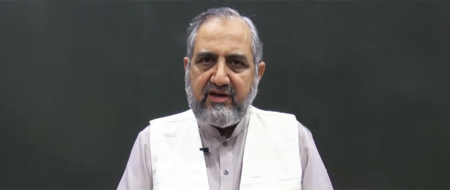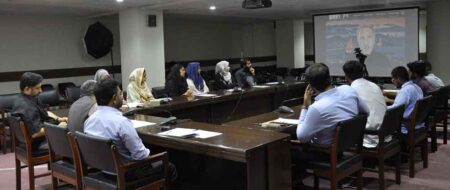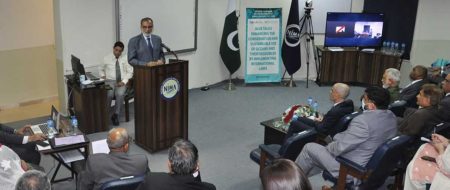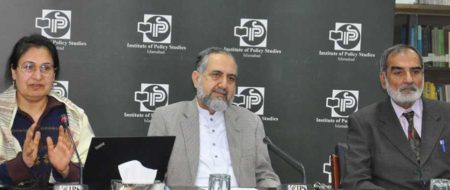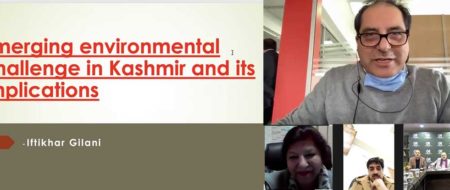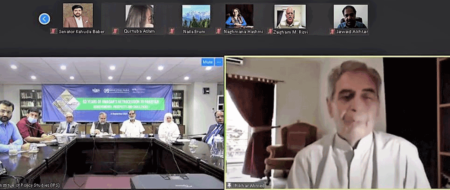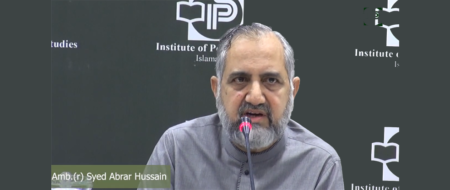‘Energy Priorities in Crisis: Navigating Gas Supply Cuts to Captive Power Plants in Pakistan’
Experts term transition of CPPs towards grid vital for energy sector; Call for audit to accurately assess captive units efficiency levels
Aiming to analyze and discuss Pakistan’s concurrent pressing energy challenges, IPS hosted a webinar titled ‘Energy Priorities in Crisis: Navigating Gas Supply Cuts to Captive Power Plants in Pakistan’ on December 3, 2024. The event brought together prominent experts and practitioners from Pakistan’s power sector
The session commenced with welcome remarks by Ameena Sohail, Senior IPS Associate and a renowned energy lawyer. She emphasized the significance of addressing the ongoing energy crisis through informed policy interventions. Muhammad Wali Farooqi, a researcher from IPS’ Energy, Water, and Climate Change desk, formally opened the proceedings by presenting an overview of the topic, laying the groundwork for expert discussions. Farooqi pointed out that there are currently an estimated 1,180 captive units in the country consuming approximately 358 MMCFD of natural gas, while 400,000 industrial consumers depend on the grid. He highlighted that if industries with captive power plants transition towards the grid, the benefits to the power sector and consumers are manifold—including reduced electricity prices due to natural gas reallocation, stimulation of national power demand which would reduce capacity payments, and a boost to the revenue of DISCOs, thereby reducing the circular debt burden.
Talking to the webinar, Bilal A. Shaikh, Director of Energy Business at an EU-based energy technology solutions provider, challenged the prevailing perception regarding gas utilization efficiency in captive power plants. He noted that while efficiency was often claimed to be above 60-65%, the actual figures were significantly lower. Highlighting an alternative approach, Shaikh argued that diverting gas to grid-based power plants could stabilize the energy system without causing revenue losses to gas utilities.
Abubakar Ismail, Head of Energy at Amreli Steels, criticized the lack of proper markets for gas and electricity, describing this gap as a root cause of the current energy challenges. He pointed out that high grid costs are a major burden on the industry, suggesting that gas allocated to the grid instead of captive units could help balance electricity costs to some extent.
Asad Mahmood, a renewable energy expert, stressed the importance of inter-departmental coordination to enhance energy management. He acknowledged the role of captive power plants in supporting the industrial sector but advocated for a gradual shift towards greater grid reliance to create a more balanced energy landscape.
Asim Riaz, an energy expert, and Rehan Jawed, a seasoned industrialist, also shared their perspectives, emphasizing the need for sustainable energy practices and innovative solutions to address the growing crisis.
In her concluding remarks, Ameena Sohail underscored the critical need for integrated planning in the energy sector, supported by equitable policies. She called for gas allocation decisions to be guided by national interests rather than lobbying pressures, recommending the evaluation of captive power plants based on efficiency benchmarks to phase out inefficient units. Ameena Sohail further emphasized the establishment of fair benchmarks to foster a competitive and sustainable energy market.
The session concluded with a consensus among participants on the urgent need for comprehensive policy reforms aimed at ensuring efficient energy utilization and equitable resource allocation.




